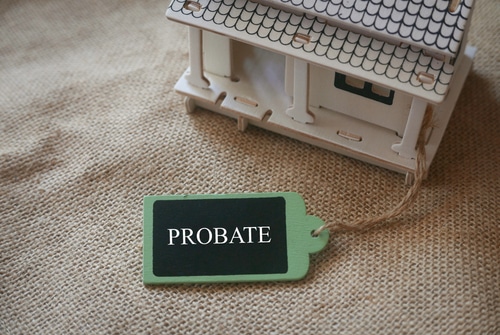Property is the largest assets most people own in their lifetimes.
So, selling a probate property is a common task.
But before a sale, the probate property must be valued.
Probate valuations
A probate valuation is simply a valuation of a probate property.
If the deceased has a will, they will hopefully name who will inherit the property. But before the can become the legal owner, the property has to undergo a probate valuation.
This is used to:
- Find out whether there is inheritance tax
- Calculate the Capital Gains Tax on any assets that have increased in value since the death
- Ensure outstanding debts are paid off
- Ensure the estate is correctly distributed to the beneficiaries
The valuation will identify how much the property would sell for if it were sold on the open market.
The valuation should be carried out by a professional to ensure the price is as accurate as possible.
So, having a desktop valuation (an approximate estimate given my online estate agencies or cash buyers without visiting the property) is not a good choice.
Time limits
There is no time limit in the UK on when you can apply for probate.
So, there is no time limit for a probate valuation to be completed.
However, it’s crucial to note that inheritance tax must be paid within six months of the person’s passing. This is irrespective of how far along you are in the probate process.
Probate valuation costs
Most property experts charge to complete a valuation of your house.
They will either charge a fixed rate, which may vary depending on the size of your property. Or they might charge between 1 – 5% of your house’s value.
Some estate agents offer free valuations. But they sometimes exaggerate their valuation to please prospective customers.
If you have the finances to do so, you may want to consider getting second or third opinions, just to be thorough.
Costs at this stage in the probate process can usually be taken out of the estate later on.
Probate valuation vs normal valuation timeframes
There is no reason why a probate valuation might take longer than a standard valuation.
If the house is in poor condition, it might affect its valuation.
Emptying probate property before a valuation
You must wait until probate is granted before you empty a probate property.
This is advisable if there is more than one beneficiary of the property. You may need to discuss as a group who inherits which items from the house.
Probate completion and selling
Probate must be completed before you can legally sell a house.
However, you can list a property on the market before probate is completed.
But you cannot complete the paperwork to sell it until probate is granted.
Some people may place the house on the market before the probate is granted to speed up the selling process.
Responsible for keeping a property secure during probate
The executor or administrator is responsible for keeping the property secure. They usually don’t allow anyone to live in it, either.
If the home is damaged during probate, the executor or administrator may be liable.
So, installing security measures and getting the correct insurance is essential. You may also have to take care of more minor details, include turning on the heating in cold seasons.


















